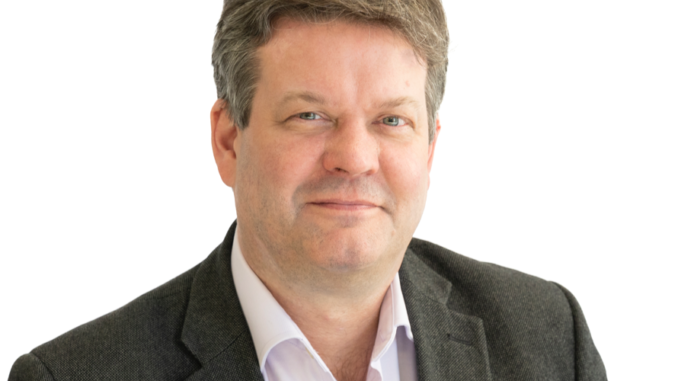
Radiocentre CEO Ian Moss shares his thoughts on commercial radio in 2022.
Hussein Manawer’s powerful poem first aired at Radiocentre’s Tuning In conference back in November serves as a good reminder to us all just how much of a comfort radio has been to millions of listeners across the UK during these challenging times.
Without wanting to doom 2022, we enter the New Year with a hint of positivity.
We can see this directly as a sector with the latest RAJAR figures showing commercial radio reaching a record 37 million people. The last two years have been turbulent yes, but there are encouraging signs that the worst of the pandemic is behind us as the government works on a strategy for living with COVID and a return to normality. On the revenue front, WARC and Enders Analysis have both predicted radio advertising revenue is set for double-digit growth which means we can approach 2022 with cautious optimism.
New audio formats and multiple ways of listening mean we are very much in the midst of an audio revolution. Through a broad range of initiatives, Radiocentre continues to support the radio industry as it continues to lead the way.
Our Backing Brilliant Business initiative, launched just after I joined Radiocentre, focuses on the small to medium-sized business sector, and aims to bring new and old advertisers into radio and reminds them how radio works with search. Look out for more initiatives under the Backing Brilliant Business banner in the coming months.
It was great to see the return of our in-person Tuning In events, and I am delighted to say they are here to stay. But we also found out that many people enjoy attending events remotely and we aim to continue offering this option as much as possible in future. It has certainly led to much bigger audiences with our most recent event attracting a combined audience of over 1,000 attendees with more than 100,000 catch-up views.
On the policy side, the Digital Radio & Audio Review is a comprehensive and important joint Government-industry examination of the challenges currently facing the sector, along with tangible recommendations that will help traditional broadcasters continue to thrive as listening habits change.
The All-Party Parliamentary Group (APPG) for Commercial Radio continued to support our sector in parliament and recently published a new report, The Future of Radio that, among other priorities, highlights the need for all radio to remain freely available online and on smart speakers in future.
We just about managed to summarise the report in a short 60-second video.
Looking ahead further, we are focusing on our strategic priorities. Underpinning future growth by developing new foundations to support commercial radio’s revenue drive next year and beyond will be crucial. Through our See Radio Differently positioning, we will continue to challenge perceptions and define radio’s central role in the evolving audio world. And of course we’ll continue to fight UK commercial radio’s corner with Government and policymakers by demonstrating its public value in order to ensure a fair regulatory environment.
In practice, this will see us feeding into the BBC mid-term Charter Review. It is imperative that this process provides a meaningful review of the oversight of the BBC and that its public service commitments are not diluted. We will also work with Government and parliamentarians on implementing the recommendations of the Digital Radio & Audio Review. We expect that the Department for Digital, Culture, Media & Sport will publish a white paper on broadcasting shortly and anticipate that a Media Bill will most likely be the legislative vehicle for much of these policies later in 2022. We will also continue our campaign to reform lengthy warnings at the end of radio ads.
The second phase of our Big Audio Datamine analysis as well as a new direct-to-consumer research project will both be ready for launch soon. A big new study is also on the horizon for later in the year that will provide insight into the listening behaviour of audio audiences. Marketing campaigns will amplify all of the research findings. Investment in Radiogauge will continue to provide individual advertisers with evidence of radio’s effect within the media mix. Regional and National Tuning In sessions will return, with Manchester first on the list in late February.
So, the future is looking busy and definitely brighter. We look forward to seeing more of you over the coming months as we start this journey back to normality and I’m still going to be out and out visiting members and keeping in touch.
